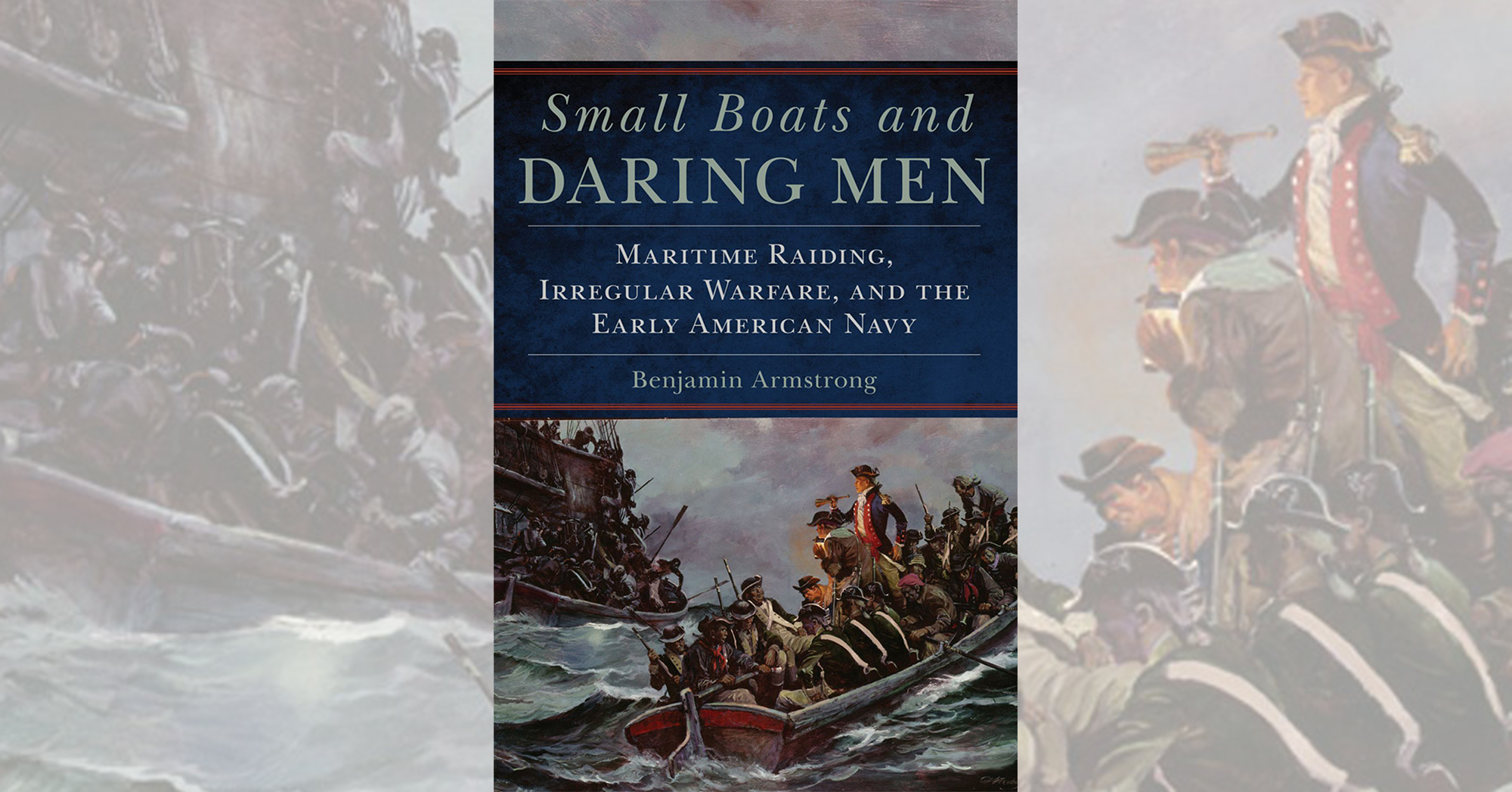Small Boats and Daring Men: Maritime Raiding, Irregular Warfare and the Early American Navy, by Benjamin Armstrong, University of Oklahoma Press, Norman, 2019, $34.95
Covert operations often prove crucial toward weakening enemy resistance, while also serving to boost morale in the ranks and sway public opinion. We tend to think of such secretive surgical strikes as the domain of elite U.S. Navy SEALs or Army Green Berets. But truth is, various American fighting forces have carried out similar missions since the birth of the republic. In this first-of-its-kind historical study author Benjamin Armstrong—an assistant professor of war studies and naval history at the U.S. Naval Academy in Annapolis, Md.—details early naval operations that set the precedent for future clandestine maneuvers.
Armstrong has edited two books on naval warfare and written numerous articles on naval history and national security. Drawing on original operational reports and sailors’ memoirs and diaries, the author here crafts a riveting account of how the nascent U.S. Navy stared down seemingly insurmountable odds to achieve success. The narrative focuses on several key episodes in American naval history, from John Paul Jones’ bold 1778 assault on Whitehaven, England, during the American Revolution, to Stephen Decatur’s 1803 burning of the frigate USS Philadelphia and the Marines’ 1805 assault on “the shores of Tripoli” during the First Barbary War, to naval engagements on the Great Lakes and in the Atlantic Ocean during the War of 1812, as well as other actions in the Caribbean and Sumatra. Armstrong provides a detailed and readable analysis of the operations, linking them to current tactics and operations as the United States pursues its ongoing global war on terror.
Small Boats and Daring Men is one of those rare books that combines scholarly discourse with exciting storytelling as it relates the birth of American sea power by military leaders short on resources but long on ingenuity.
—Dave Kindy





